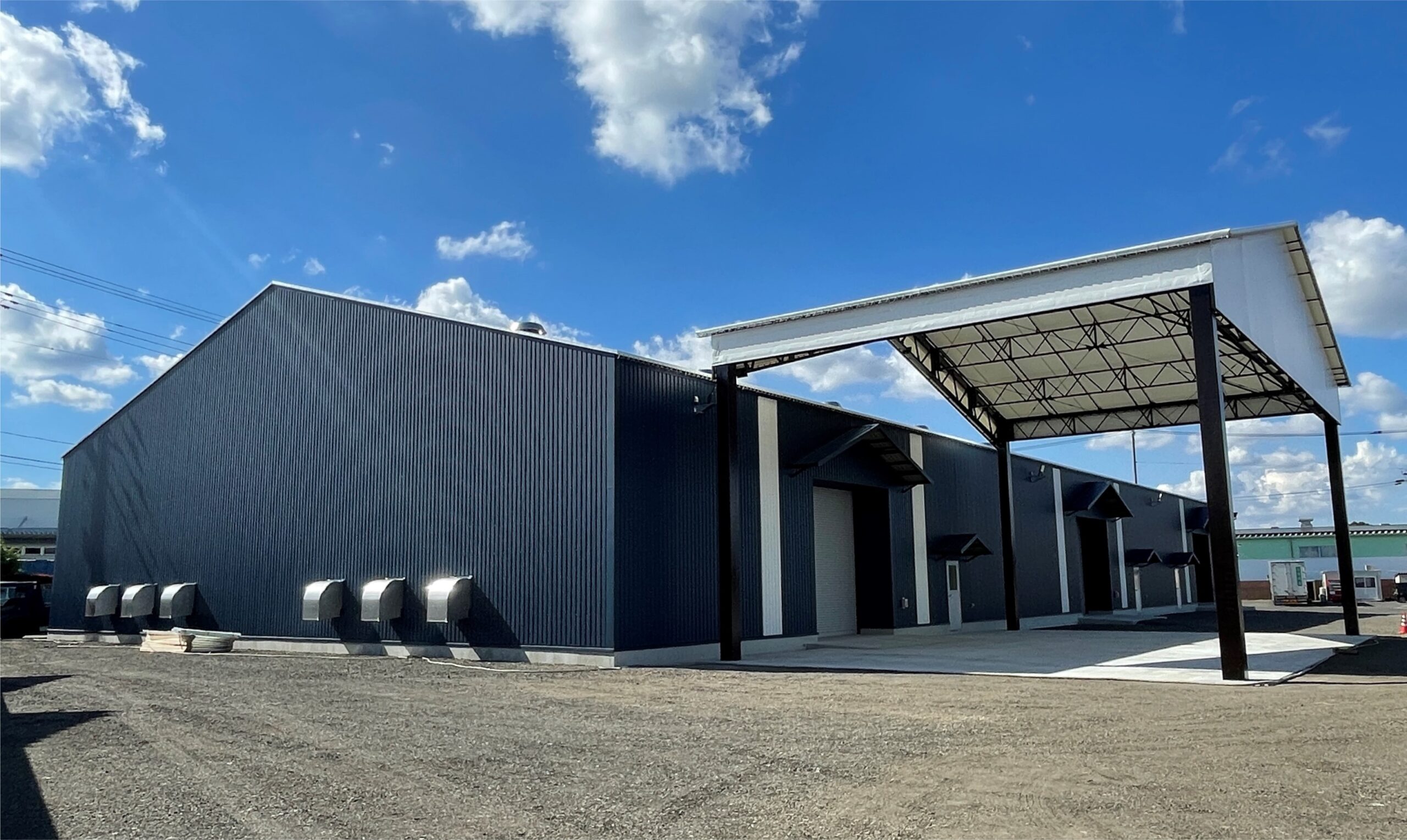

Taiyo Kogyo Column
Difference between a warehouse that does not engage in warehousing and a “commercial warehouse”│Organization of related knowledge and introduction of recommended warehouses
2020.10.05

To operate a warehousing business, a commercial warehouse must be established. The definition of a “commercial warehouse” and related laws and rules must be understood in advance. However, the rules in the warehousing industry are complex, and many people may feel that they do not have a clear understanding or organization of “development permits” and “registration.
To alleviate such concerns, this article provides a brief overview of the key points to understand when considering the establishment of a commercial warehouse, with a focus on development permits.
Please read on to learn about other “tent warehouses” that offer significant advantages as commercial warehouses and recommendations on how to proceed with the process, including development permits.


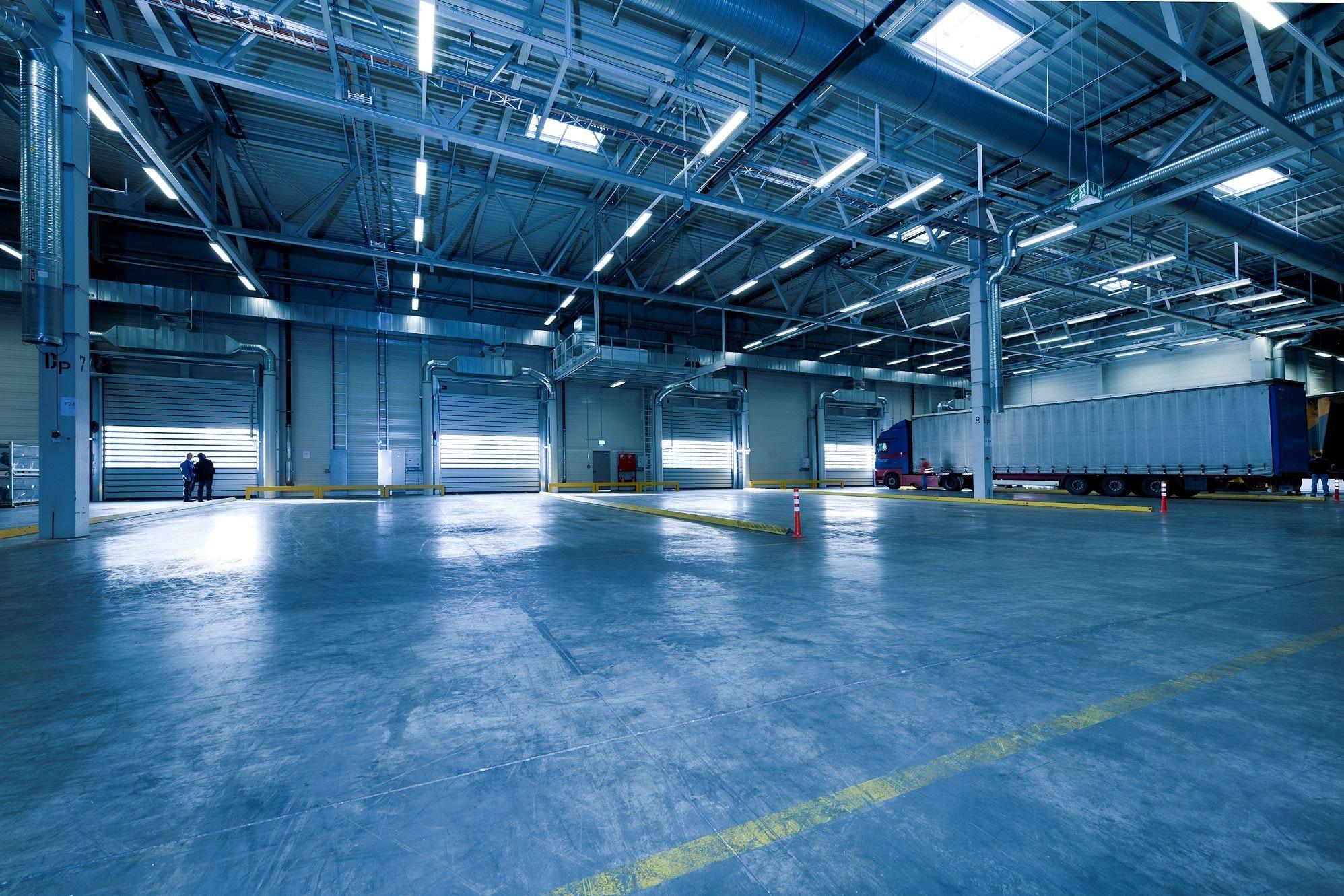

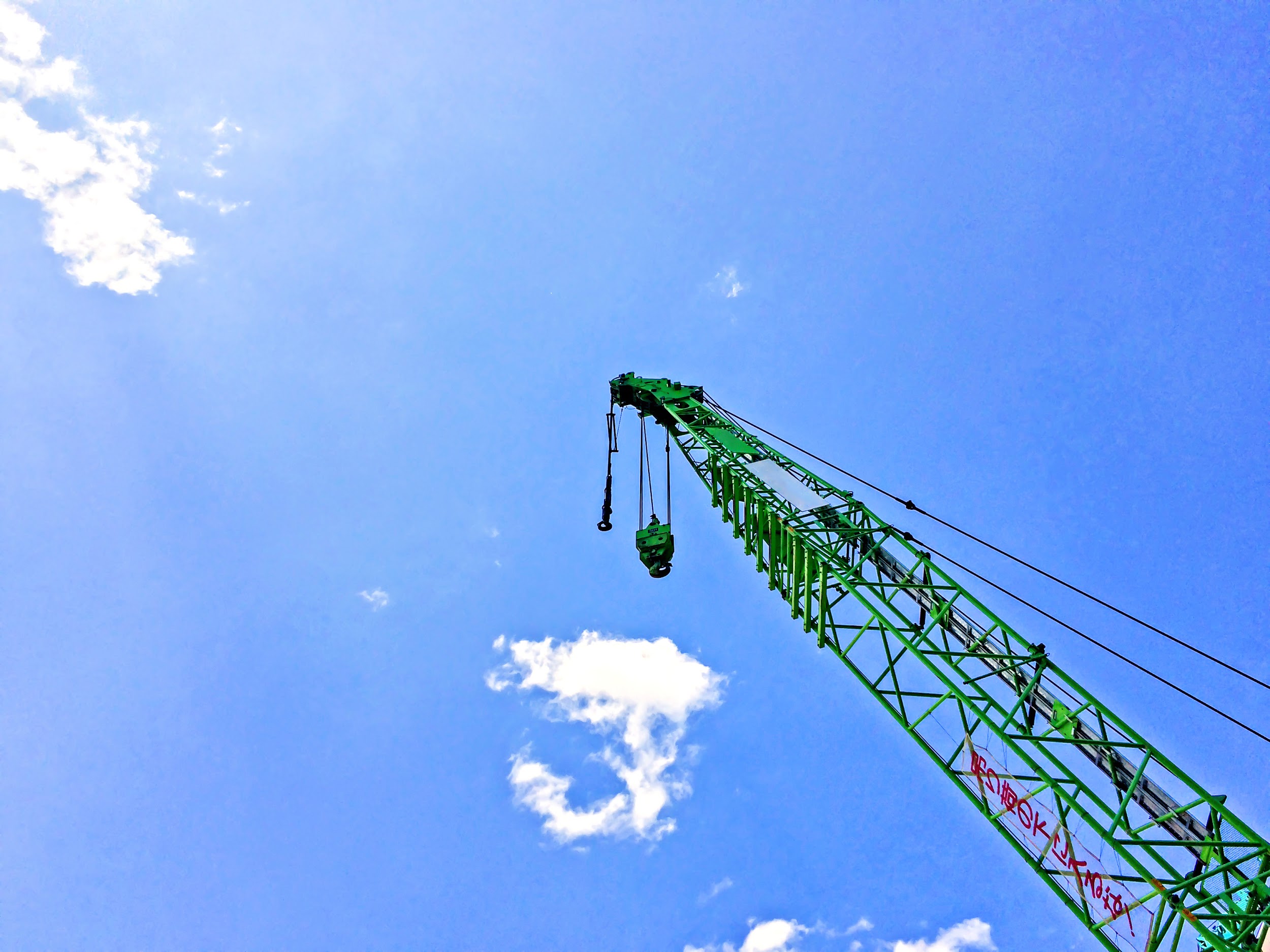

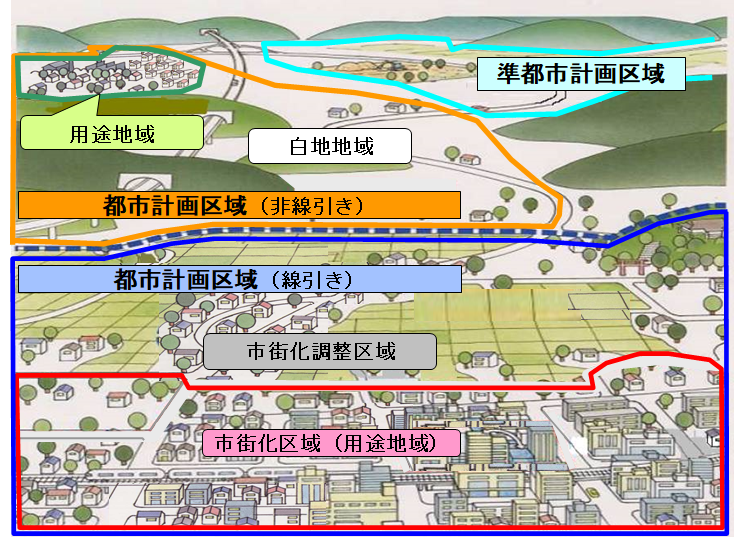
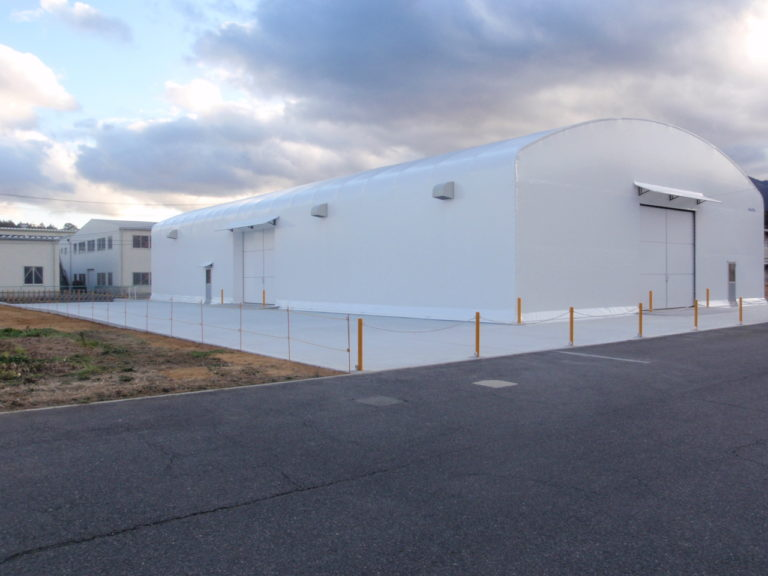
(A “tent warehouse” has various advantages as a sales warehouse)
What are the advantages of tent warehouses?
A tent warehouse is a warehouse with a “membrane structure” (a metal framework covered with a membrane material). The superior performance of various “membrane materials” developed through ever-evolving technology offers many advantages over conventionally constructed warehouses and has attracted attention in recent years, regardless of industry.
The main advantages of tent warehouses are summarized in the following three points.
- Superior functionality
- Low cost and short construction period
- Building Permit Relaxation Measures
Superior functionality
In fact, there are many cases where tent warehouses are actually used as commercial warehouses, and they are highly regarded as a convenient alternative to existing warehouses. Specific advantages of tent warehouses include the following functional aspects
- High lighting and brightness in the warehouse to save electricity.
- Heat does not accumulate easily, making it easy to keep the warehouse comfortable.
- Rust does not occur because the walls and roof are membrane materials
- Easy maintenance, including the ability to make partial repairs
- Wide range of sizes and functionalities for various applications
- Flexible, lightweight, and resistant to earthquakes, minimizing damage in the event of a fall.
- The “Dual Membrane System” can also function as a temperature-controlled warehouse.
- Some specifications are designed to withstand cold-weather snowfall.
- Flame retardant and disaster prevention can be handled if nonflammable membrane materials are used.
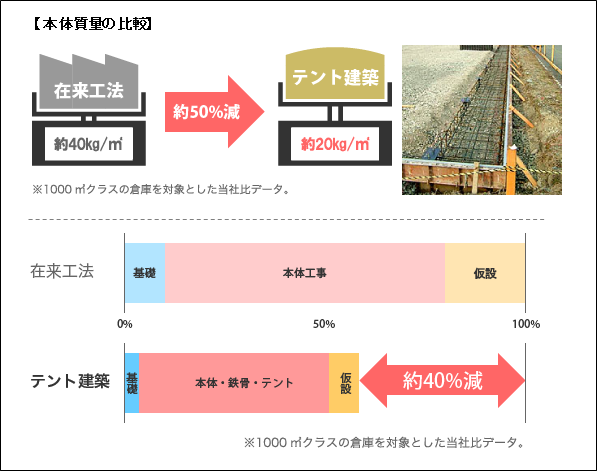
Building Permit Relaxation Measures
In addition, tent warehouses have the advantage of being eligible for relaxed regulations in building permits, provided that they meet the conditions stipulated in “Notification No. 667 of the Ministry of Land, Infrastructure, Transport and Tourism”. The mitigation measures will reduce the burden in many areas, and will be one of the reasons for businesses to choose tent warehouses.
There are detailed items to be checked in order to determine if the property is eligible for mitigation measures. The checks are complicated and require specialized knowledge, so a professional investigation is necessary. It is advisable to request this investigation to a business with a proven track record and knowledge.
For consultation on tent warehouses, including development permits, contact Taiyo Kogyo, a professional in business for 100 years.
Even if you understand that tent warehouses have excellent advantages, you may not have a clear picture of the specific procedures to be followed to check standards and apply for development permits and other approvals.
In such cases, you should not deal with the problem by yourself, but ask a specialized business operator to do so. If you contact Taiyo Kogyo Corporation, you can leave everything from tent warehouse design to various procedures to us as a one-stop service.
Taiyo Kogyo Corporation is a tent professional that has been in business for about 100 years, and can handle building permit applications for tent warehouses as well as other highly specialized legal procedures on your behalf. We can handle the entire process as a one-stop shop, so there is no need to coordinate with multiple businesses. Furthermore, we have sales offices throughout Japan, so on-site surveys and meetings are possible regardless of the region. Please contact us.
Tent Warehouseへの
Contact us

What you need to know when building a warehouse
We packed it all in.
Clues to solving the 2024 problem
Recommended for
I don't know where to start in building a warehouse.
I want to build a warehouse in an economical way.
Which type of warehouse should we build?
I want to learn the basics of warehouse construction anyway.
I'm concerned about the 2024 problem, but I don't know what to do about it.
Related Articles
- TOP>
- Taiyo Kogyo Column>
- Difference between a warehouse that does not engage in warehousing and a “commercial warehouse”│Organization of related knowledge and introduction of recommended warehouses







